Space News
Livescience
229

Image Credit: Livescience
The Milky Way will be visible across the US this month. Here's how to get the best views.
- The bright band of the Milky Way will be visible across the US this month, making its first great appearance of the year in the Northern Hemisphere.
- To see the Milky Way, one needs to be far away from light pollution, such as in a Dark Sky Place or a location that appears dark on light pollution maps.
- Milky Way season runs from February to October, with May being a good time to observe it between the last quarter moon on May 20 and the new moon on May 30.
- The Summer Triangle, formed by three bright stars, can help skywatchers in locating the Milky Way, with it being visible in the east at midnight and higher in the southeast by 3 a.m. local time between May 20 and May 30.
Read Full Article
13 Likes
Knowridge
95
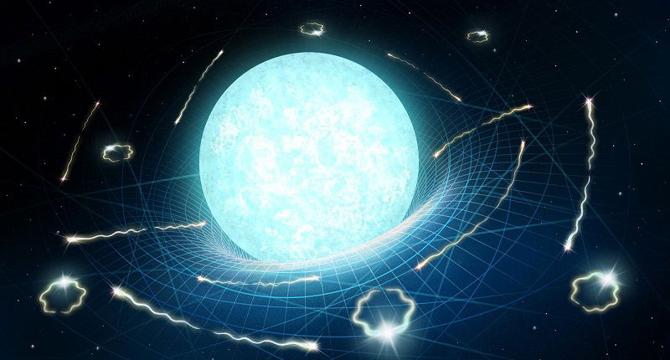
Image Credit: Knowridge
Universe expected to decay sooner than thought
- New research suggests that the universe may decay much sooner than previously believed.
- Calculations by Dutch scientists show that stars and objects could evaporate within 10⁷⁸ years, a significant reduction from the previous estimate of 10¹¹⁰⁰ years.
- The study, led by experts from Radboud University in the Netherlands, builds on Hawking's concept of radiation escaping from cosmic objects, indicating a closer end to the universe.
- This research combines astrophysics, quantum physics, and mathematics to explore extreme scenarios, enhancing our understanding of the universe's fate.
Read Full Article
5 Likes
Earthsky
34
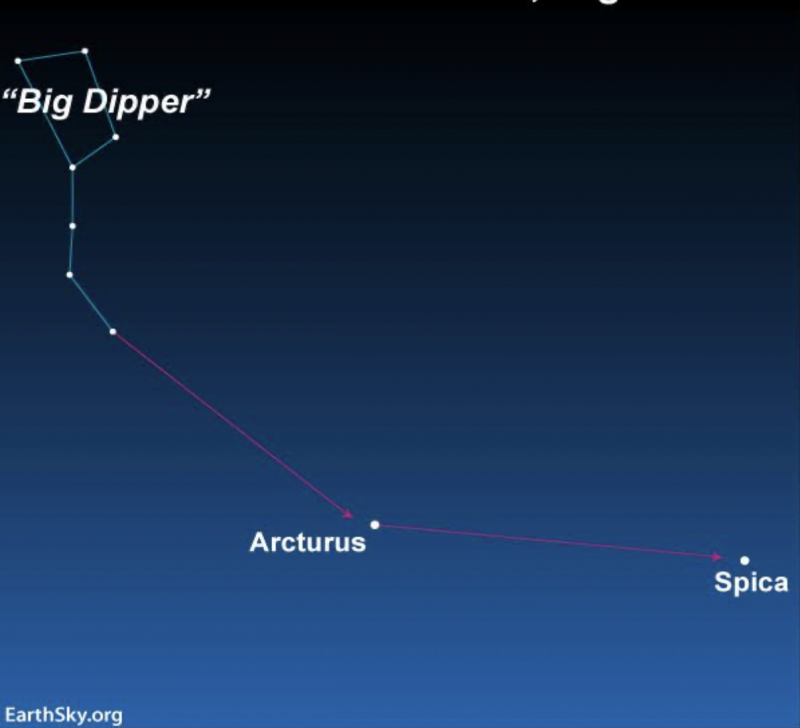
Image Credit: Earthsky
Arcturus, the brightest star of the northern sky
- Arcturus is the 4th-brightest star in the sky and the brightest star in the northern half of the sky, located only 36.7 light-years away.
- It is easily recognizable in spring evenings in the Northern Hemisphere by following the arc from the Big Dipper's handle to Arcturus.
- Arcturus is part of the constellation Boötes the Herdsman and remains visible in the night sky for most of the year for Northern Hemisphere observers.
- It stands out as a lonely bright star with no bright neighbors and is most prominent in the sky during spring before the Summer Triangle dominates.
- Arcturus is the brightest star in the northern part of the sky and is visible during daytime, historically observed with telescopes.
- This red giant star is approximately 25 times larger than the sun, radiating over 100 times more light in visible light and about 200 times overall.
- Arcturus' proper motion indicates it is moving rapidly relative to our solar system, part of the Arcturus stream of old stars possibly from a dwarf satellite galaxy.
- The star's observable movement suggests it will disappear from visibility in about 150,000 years as it moves southward and away from Earth.
- Arcturus holds significance in various mythologies and cultures, such as being associated with the Great Bear and the Dragon in different traditions.
- The star has a rich history, including being used to initiate the 1933 Century of Progress Exposition in Chicago through a light-based opening ceremony.
Read Full Article
2 Likes
Livescience
246
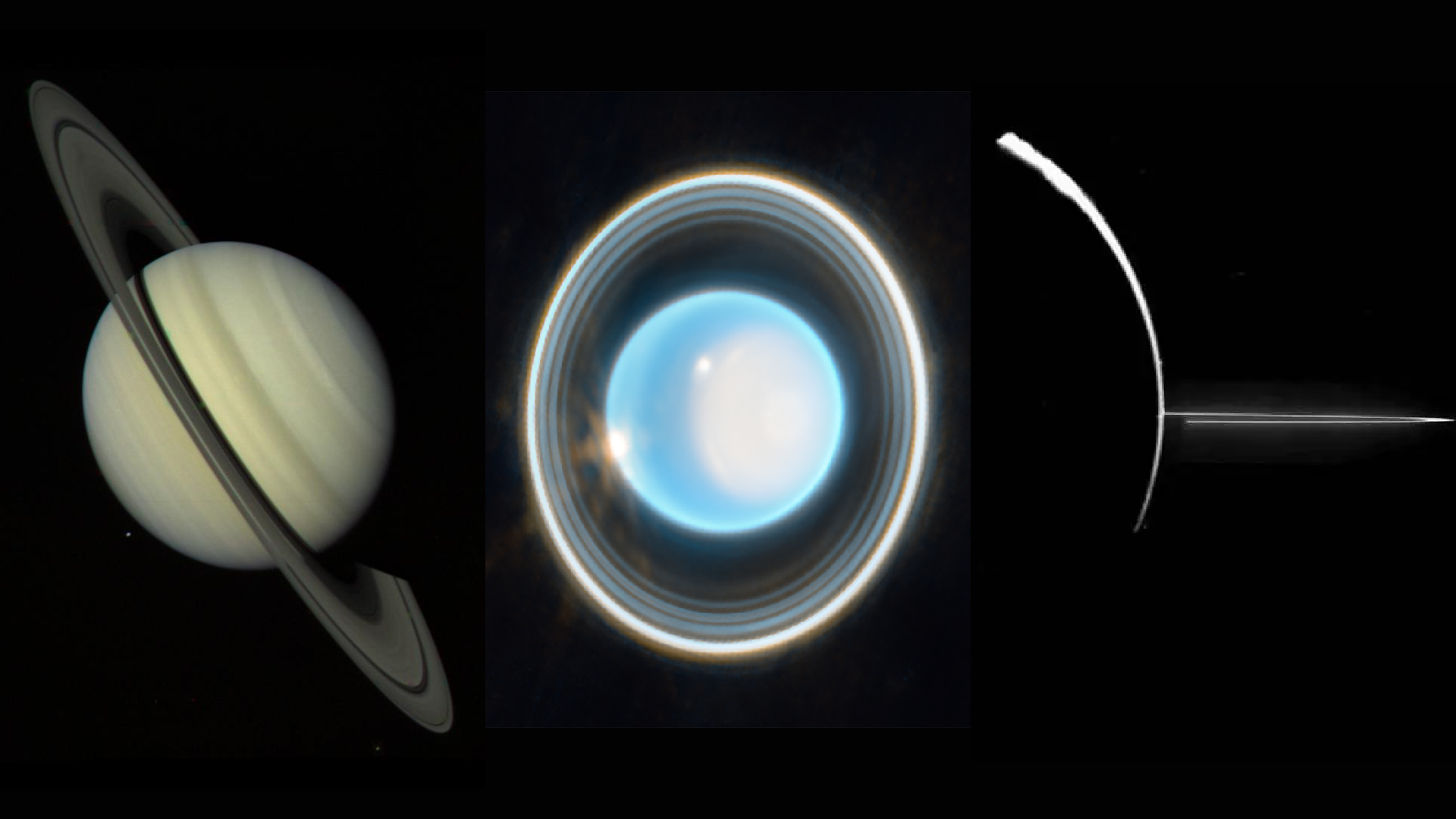
Image Credit: Livescience
Which planets have rings?
- All four giant planets in our solar system - Jupiter, Saturn, Uranus, and Neptune - have rings along with other objects like the dwarf planet Haumea and asteroid Chariklo.
- Planetary rings are mainly composed of ice and small rocks, with variations depending on the planet's location and moons.
- The formation of planetary rings can occur through impacts from large objects, the disintegration of moons, or the collection of nearby objects by a planet's gravity.
- Saturn's iconic rings, made primarily of ice, are expected to vanish in hundreds of millions of years as the debris falls into Saturn's atmosphere.
Read Full Article
14 Likes
Discover more
Nasa
173
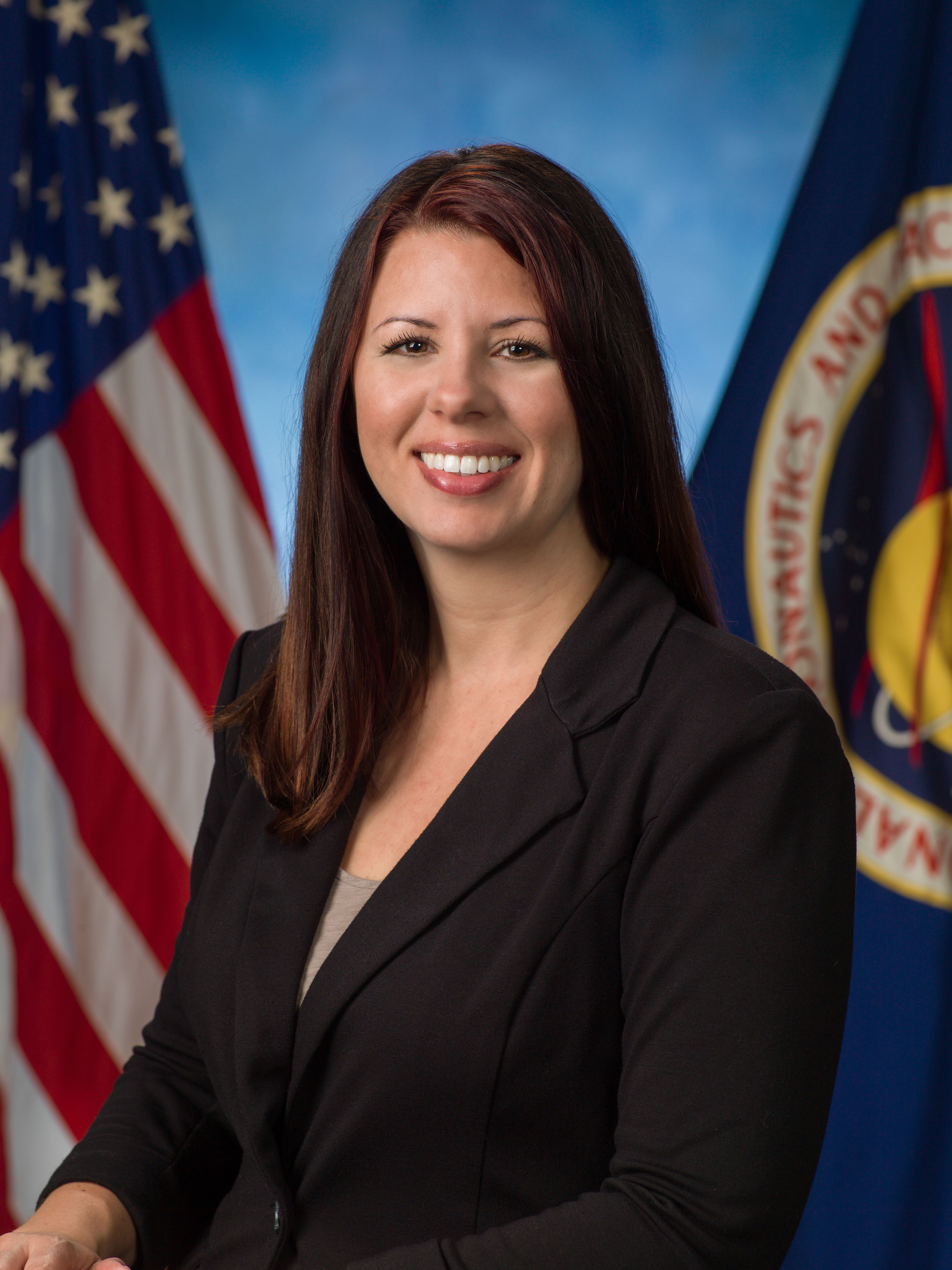
Image Credit: Nasa
Aubrie Henspeter: Leading Commercial Lunar Missions
- Aubrie Henspeter leads the CLPS procurement team at NASA, ensuring commercial partners deliver payloads to the Moon efficiently and affordably.
- Henspeter manages a team supporting seven commercial missions and shapes future contract opportunities for lunar deliveries.
- NASA's CLPS initiative aims to partner with commercial companies for lunar deliveries to support Artemis goals.
- Henspeter received NASA Exceptional Service Medal for her leadership and emphasizes the importance of collaboration and adaptability in achieving mission success.
Read Full Article
10 Likes
Digitaltrends
255
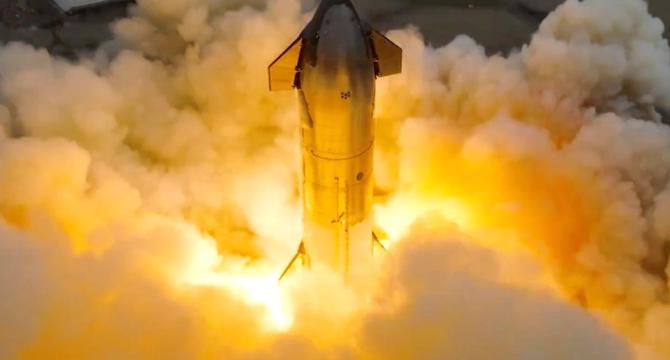
Image Credit: Digitaltrends
Starship to fly again — What to expect from SpaceX’s upcoming test
- SpaceX is preparing for the ninth test flight of its powerful Starship rocket, with the launch expected in the next week or two.
- The upcoming test will involve reusing a first-stage Super Heavy booster for the first time, aiming to enhance cost efficiency for future missions to the moon and Mars.
- SpaceX will attempt an in-flight relight of the Starship spacecraft's engines during the test, crucial for missions like orbital refueling and deep space exploration.
- The Starship spacecraft for this flight, Ship 35, incorporates upgrades including redesigned flaps and an improved heat shield, with NASA closely watching progress for its Artemis program.
Read Full Article
15 Likes
Digitaltrends
65
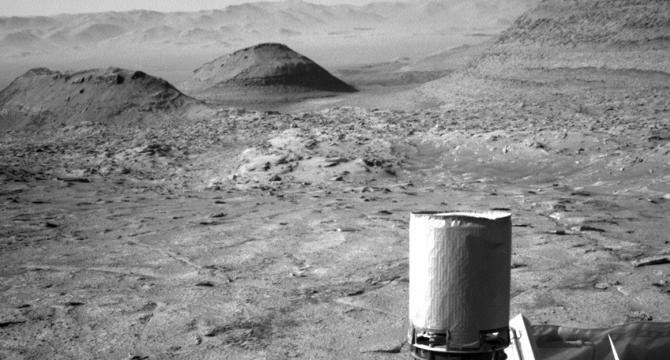
Image Credit: Digitaltrends
Marvel at Mars’ ancient landscape, captured by Curiosity
- NASA's Curiosity rover captured a striking image of Mars' ancient landscape, showcasing hills and distant mountains.
- Curiosity has been exploring Mars for nearly 13 years, aiming to determine if the planet could have supported microbial life and assisting in preparations for future crewed missions.
- Equipped with 17 cameras and specialized instruments, Curiosity has found evidence of past habitable environments on Mars, analyzed subsurface samples, and traveled nearly 19 miles.
- Curiosity's ongoing mission has significantly advanced our understanding of Mars, leading to continued exploration and research with no specific end date announced by NASA.
Read Full Article
3 Likes
Knowridge
147

Image Credit: Knowridge
Quasars don’t last long—so how do they get so massive
- Quasars are powered by supermassive black holes that devour surrounding matter at incredible rates, releasing tremendous energy across the electromagnetic spectrum.
- Recent observations of billion-solar-mass black holes challenge conventional growth models in astrophysics, as they were observed at redshifts when the universe was less than a billion years old.
- Studies suggest that these early quasars have surprisingly short active lifetimes of less than a million years, prompting researchers to explore alternative growth mechanisms like episodic super-Eddington accretion and black hole mergers.
- Observations using the Very Large Telescope's MUSE reveal that distant quasars have only recently started intense accretion, challenging current understanding of supermassive black hole growth in the early universe.
Read Full Article
8 Likes
Brighter Side of News
34

Image Credit: Brighter Side of News
Researcher breakthrough creates extended quantum entanglement between molecules
- Controlling quantum states and entangling particles is a key focus for quantum technology researchers.
- A recent breakthrough shows extended entanglement between ultracold polar molecules, holding promise for quantum computing and precision sensing.
- Ultracold polar molecules' complex structures make them ideal for quantum applications, although fragility poses challenges.
- Researchers at Durham University have achieved long-lived entanglement, a critical step towards scalable molecular quantum technologies.
- Entangled molecules can manipulate quantum states instantly over long distances, enabling quantum simulation and high-dimensional computing.
- By using magic-wavelength optical tweezers, researchers eliminated single-particle decoherence, achieving highly accurate molecule entanglement.
- This high level of control extends entanglement duration, crucial for advanced quantum technology applications.
- The breakthrough has implications for precision sensing, quantum computing, and quantum memories, advancing quantum network technologies.
- Stable molecular entanglement could revolutionize fields like navigation, materials science, and fundamental physics with unparalleled accuracy.
- Advancements in controlling and entangling molecules open new paths for exploring diverse scientific disciplines beyond quantum computing.
Read Full Article
2 Likes
Brighter Side of News
360
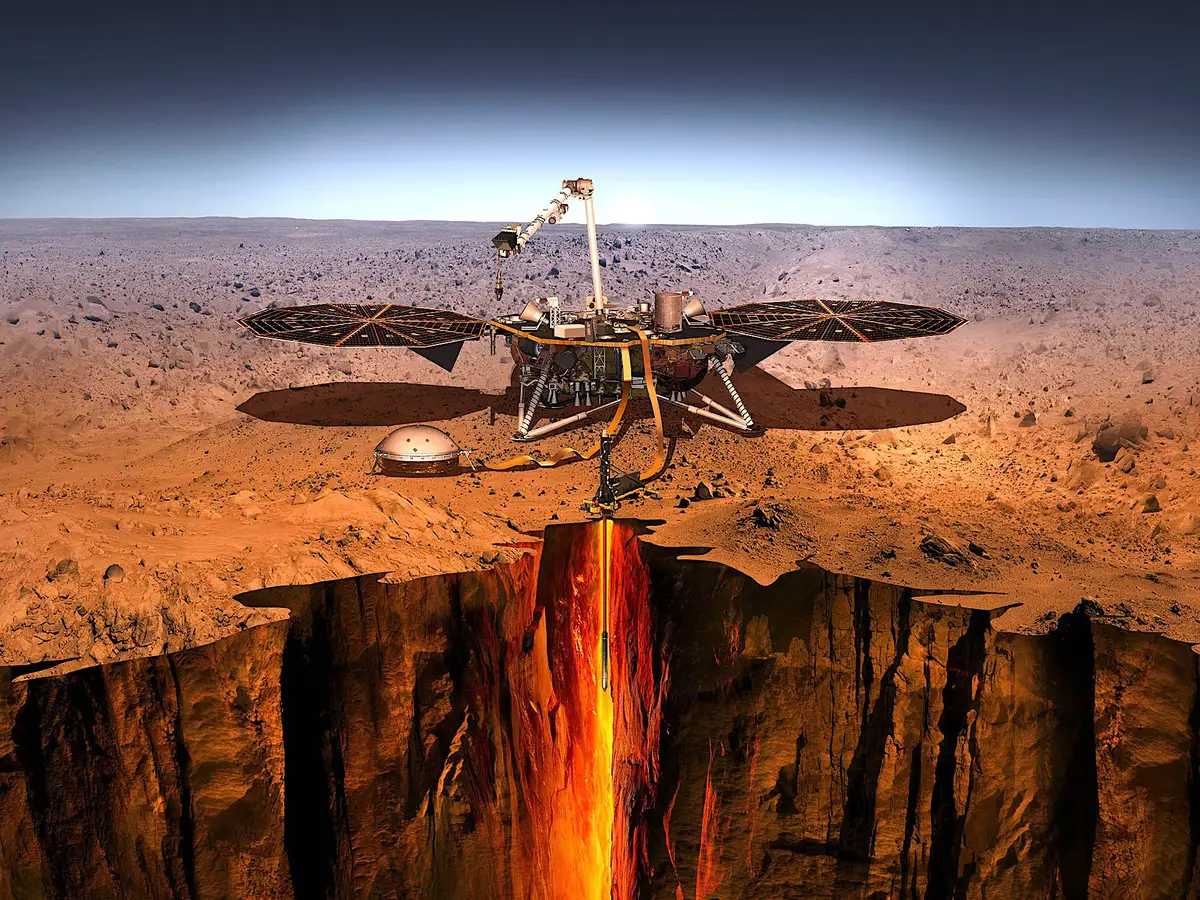
Image Credit: Brighter Side of News
Scientists find significant amounts of water hidden beneath Mars’ surface
- Scientists have discovered a significant reservoir of water hidden beneath Mars' surface, possibly stored in aquifers deep within the planet's crust.
- The transition of Mars from a wet world to a dry desert has puzzled researchers for years, with theories suggesting water evaporation into space and chemical trapping in rocks.
- Seismic data from NASA's InSight lander revealed a noticeable drop in seismic wave speeds between depths of 5.4 to 8 kilometers, indicating a hidden reservoir of liquid water.
- The subsurface water layer could hold between 520 to 780 meters of global equivalent layer, impacting Mars' potential for habitability and future exploration.
- The discovery opens new possibilities for finding signs of past or present life on Mars and could support future human exploration through water reserves for colonies.
- Understanding Mars' water cycle and hidden reservoirs sets a new direction for exploration missions equipped with advanced seismometers and drilling tools.
- The research findings published in the journal National Science Review contribute critical insights into Mars' history and implications for humanity's future on the Red Planet.
- Exploring the hidden water beneath Mars' surface reveals a world of possibilities and reshapes our understanding of the planet's potential for sustaining life.
- Future exploration missions focusing on investigating deep aquifers on Mars could revolutionize the search for extraterrestrial life and support human endeavors in space.
- Overall, the discovery of hidden water on Mars emphasizes the ongoing narrative of scientific exploration and the possibilities for humanity's future ventures beyond Earth.
Read Full Article
21 Likes
Nasa
190

Image Credit: Nasa
NASA Careers Take Off with Internships
- NASA's internship programs at the Armstrong Flight Research Center in Edwards, California provide opportunities for high school and college students to contribute to aeronautics, science, technology, and space exploration.
- Former interns Claudia Sales, Kassidy McLaughlin, and Julio Treviño showcase the long-term impact of NASA's STEM programs through their successful careers at NASA.
- Claudia Sales, now a deputy chief engineer, started as a Pathways intern and worked on projects like the X-43A hypersonic research aircraft.
- Kassidy McLaughlin, a flight systems engineer, highlights the importance of mentorship and hands-on experience in her professional development at NASA.
- Julio Treviño, lead operations engineer, began as a Pathway's intern and contributed to designing a battery model for an all-electric aircraft.
- NASA offers over 2,000 students yearly internship opportunities, with the fall 2025 application deadline set for May 16, 2025.
- To apply and learn more about NASA's internship programs, visit https://www.nasa.gov/learning-resources/internship-programs/
Read Full Article
11 Likes
Digitaltrends
360
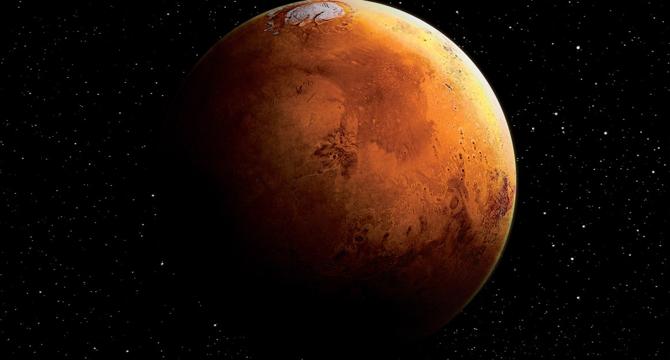
Image Credit: Digitaltrends
Europa Clipper spacecraft snaps cool thermal images of Mars
- NASA's Europa Clipper spacecraft, on its way to Jupiter's moon Europa, took thermal images of Mars while passing within 550 miles of the planet's surface on March 1.
- The spacecraft used its Europa Thermal Imaging System to capture images, testing the instrument's capabilities and checking for any malfunctions.
- The images show temperature variations on Mars, showcasing warmer areas near the equator and colder regions at the poles.
- The data collected will help in studying surface features on Europa, providing insights into potential areas influenced by subsurface ocean activity.
Read Full Article
21 Likes
Nasa
69
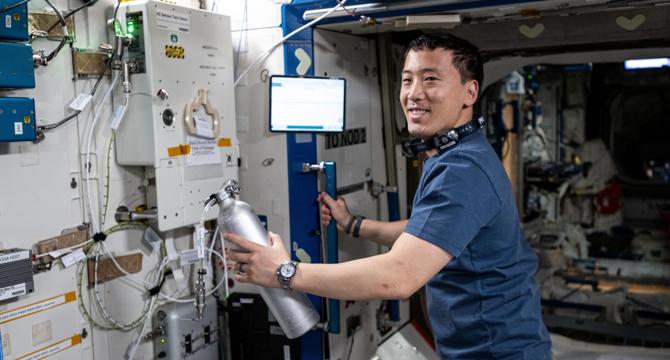
Image Credit: Nasa
Crew Kicks off the Week with Cargo Stowage, Health Research, and Maintenance and Agricultural Work
- NASA astronaut Jonny Kim installed experimental hydrogen sensors for advanced life support gear on the International Space Station's Destiny laboratory module.
- The week began with focus on cargo stowage, health research, maintenance, and agricultural work on the ISS.
- Activities included setting up and performing health exams, working on DNA Nano Therapeutics Mission, and transferring cargo from SpaceX Dragon spacecraft.
- NASA crew members engaged in photography for space agricultural study, conducted station maintenance tasks, and worked on water samples and CO2 scrubber maintenance.
Read Full Article
4 Likes
Nasa
420
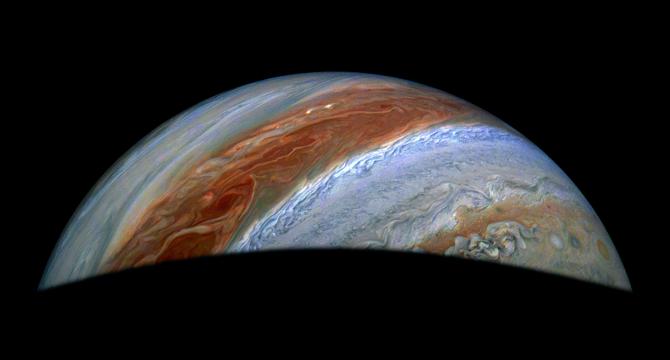
Image Credit: Nasa
Jupiter’s Turbulent Atmosphere
- JunoCam aboard NASA’s Juno spacecraft captured an image of Jupiter’s northern high latitudes during the spacecraft’s 69th flyby on Jan. 28, 2025.
- The enhanced color rendition shows Jupiter’s belts and zones, highlighting the turbulence along their edges caused by winds going in different directions.
- The original JunoCam data used for the image was taken from an altitude of about 36,000 miles above Jupiter’s cloud tops.
- Juno, since its arrival in 2016, has been exploring beneath the dense clouds of Jupiter to uncover insights about the planet’s origin, the solar system, and giant planets in space.
Read Full Article
25 Likes
Digitaltrends
217
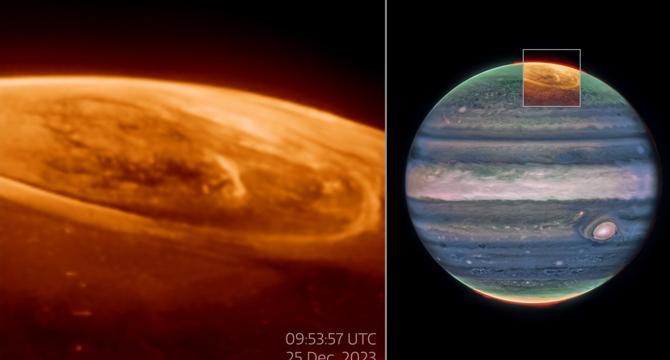
Image Credit: Digitaltrends
James Webb spots a gorgeous glowing light show on Jupiter
- The James Webb Space Telescope captured a stunning example of auroras on Jupiter, which are hundreds of times brighter than those on Earth.
- Auroras on Jupiter are formed from solar storms and the planet's strong magnetic field, interacting with charged particles from the sun and its moon, Io.
- The observations of Jupiter's auroras by Webb revealed fast-changing light patterns, indicating a complex magnetosphere on the planet.
- Researchers are puzzled by differences in observations between Webb and Hubble space telescopes, leading to questions about the behavior of auroras on Jupiter.
Read Full Article
13 Likes
For uninterrupted reading, download the app